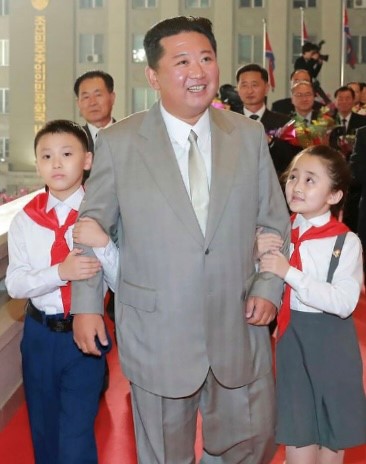Ex-US-Marine Christopher Ahn is out on bail and shows his electronic monitoring device placed on him by U.S. marshals. How did Ahn wind up in this situation? He is an unlikely person to be treated as a criminal by his own government. Burly and bearded, he is described by family friends in court filings as a “happy-go-lucky guy who is like a teddy bear inside.” A son of Korean immigrants, Ahn has been taking care of his family since he was 17, when his father died of cancer. He now takes care of his ailing mother, who has a debilitating nerve disease, and his 97-year-old, blind grandmother, who is afflicted with Alzheimer’s.
It is Ahn’s altruistic impulse that now threatens his freedom. In 2009, Ahn met a charismatic Yale dropout named Adrian Hong who had created a human rights group to help North Korean refugees. Eventually, Hong founded another group, called Free Joseon. Ahn is in his current predicament because of a call he received from Hong in early 2019 — this time to help facilitate the defection of North Korean diplomats in Madrid.
Responding to an extradition request from Spain, the Justice Department decided to arrest Hong at a time when then-President Donald Trump was seeking to strike a deal with Kim Jong Un. Ahn went to Hong’s apartment in Los Angeles only to discover that a heavily armed task force of U.S. marshals was there looking for Hong. (Hong, who had fled, is now a fugitive from the governments of Spain, North Korea and the United States.) Ahn was then arrested and spent three months in a federal jail.
Now, a pro bono lawyer is helping Ahn fight the Justice Department’s attempts to extradite him to Spain. (The standard to extradite him is relatively low — prosecutors need only prove “probable cause” that the charges are true.) If convicted by a Spanish court on charges including kidnapping, breaking and entering, battery and being part of a “criminal organization,” he could be imprisoned for 21 years.
Ahn is, above all, an idealist. The bitter irony is that in trying to grant North Koreans their freedom, Ahn might have sacrificed his own.
[Washington Post]

